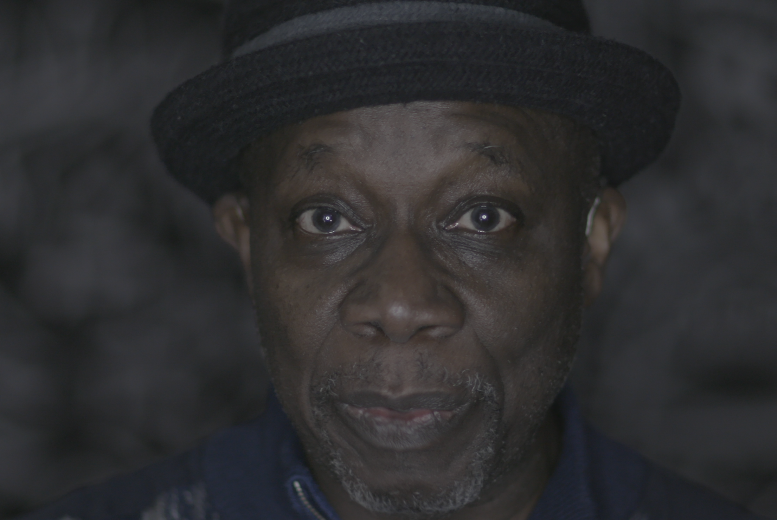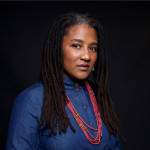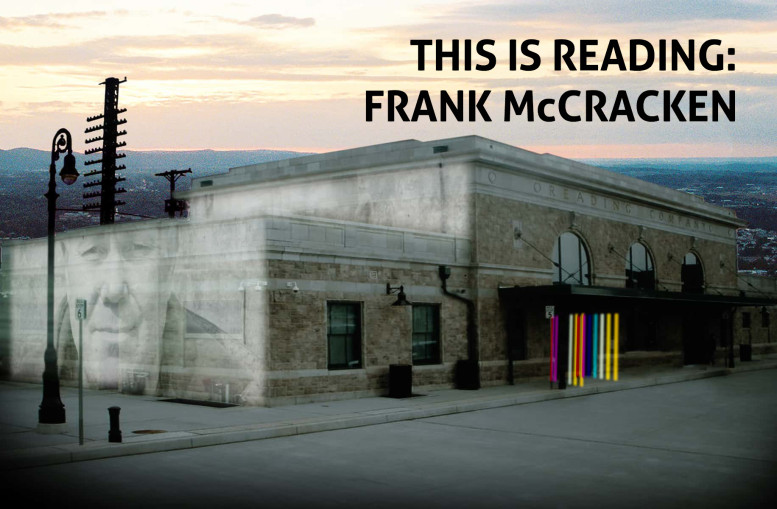Five years ago, Lynn Nottage read a story profiling Reading, Pennsylvania as the poorest city in America. Moved by its people’s plight for survival after industry and infrastructure failed them, Lynn traveled to this city in the middle of the Keystone state and began listening to their stories. Famously, the result was her now Pulitzer Prize-winning play, “Sweat,” which recently debuted on Broadway.
“Sweat” closes this week, but Lynn and her husband Tony Gerber still have stories to tell. Or, rather, they want to share stories told by Reading residents. Lynn and Tony’s Market Road Films will occupy Franklin Street Railroad Station in Downtown Reading with This Is Reading, a dynamic, site-specific multimedia installation blending live performance and visual media, re-animating the long-vacant building. Using as its foundation the challenges, and triumphs of people living in and around Reading, PA., This is Reading will weave their individual stories into one cohesive and celebratory compelling tale of the city.
As part of the lead-up to the event’s opening on July 14, we are happy to host a series of transcribed interviews from Lynn’s years of research, along with some other special online video dialogues over the next three weeks. In this first installment, Lynn interviewed Frank McCracken, who grew up in Reading amongst the steel workers and unions.
This is Reading runs July 14-16 and 21-23, 2017
To reserve your free ticket, visit here.
Follow on Facebook and Twitter
Join the conversation with #ThisIsReadingPA and #ThisIsOurTown
LYNN: So your family came here in what year?
FRANK: My family moved out of Newbury in the early 1900s.
LYNN: And they came north.
FRANK: They came to North Carolina. To Thomasville in Winston-Salem—that area, where they had the furniture—then my father, who was born in 1909, he was the youngest of about twelve. He was born in 1909. He left there somewhere around nineteen…um, twenty nine, twenty eight… In the late 20s. He left, he went to Detroit and he came to Reading, Pennsylvania following his brother who had been here since about 1919.
LYNN: And why Reading?
FRANK: There was the steel industry, there was textile, you know, there was the railroad. And so they came here for opportunity.
LYNN: And so your family all worked in the factories.
FRANK: Yeah, my uh…they worked in the steel mill. It didn’t work for my father. He told me that, when he first came, times were really hard. They used to work construction for five cents an hour. And the way they worked those men back then. They would stand in line and the guys would fall over, fall out from, you know, exhaustion. They would take them out in a wheelbarrow and the next guy would go in his spot.
LYNN: And that was before unions or anything, so they could work them to the bone.
FRANK: Oh, they could work them ’till they dropped. And so he told me that he worked and, he worked doing the Skyline drive there on that wall and he worked digging sewer systems. They did that work by hand back then. And then he was fortunate enough to get…to know somebody and get hired by the railroad, as a red cap. A porter. And so he stayed on that job for about forty years, I guess it was. At least. And that was a wonderful opportunity for him. And he rode the train and cleaned the sleepers. You know. Clean the train and walk around with the popcorn and peanuts…My father took me to Denver, Colorado by train, which was one of the most exciting experiences of my life. We rode a train from Reading, Pennsylvania to Denver, Colorado.

LYNN: How old were you?
FRANK: About fourteen years old or so. And we left from the old Pennsylvania Station, which was down in downtown. Near the river. We got on the train. We stopped in Pittsburgh briefly but then we had a layover in Chicago because my uncle, one of my dad’s brothers lived in Chicago so we spent a day there…and I remember, I recall, getting off the train it was very scenic. You know, you got to see everything. I remember getting off the train and when we got to the house, I sat down on the sofa and the chair was still moving because, you know… I didn’t realize but the train rocked from side to side as I rode it. And so I thought I was still feeling motion. And then we rode the train out…to Denver Colorado. And the opportunity to spend quality time with just my dad, that…I think that was the most exciting aspect of it…Just a tremendous experience. One that I’ll always remember and never forget…I had a wonderful time out there. Growing up in Reading, I had not seen that many, in total, Blacks…together.
LYNN: And so how many Black folks were in Reading?
FRANK: Reading has a small population…Black population is very small. And it always has been. Has never been a large… Reading at one time had a population of about one hundred and twenty-five thousand. And if there were ten thousand, that was a great, great big number. I don’t think there’s ever been that many in Reading. And it’s been very German. You know. This Pennsylvania Dutch country.
LYNN: What was it like growing up in the city?
FRANK: Growing up, well, we experienced racism, prejudice. We were taught that the slaves were lazy and shiftless and we learned about the big three: Ralph Bunche, Booker T. Washington, and George Washington Carver. Those were the three Blacks. That was it. They were the only three Black people that ever did anything in the world. So we learned about them. Very little. Then I can recall being in junior high school and I was probably in seventh grade and I wanted to learn. And I knew that we learned about the fathers of our nation. Washington and Jefferson and Benjamin Franklin and others but, you know…and it came to the realization, well gee whiz, that nobody looks like me. Went to the library and asked the librarian where the books were on, you know, where could I find some books on Blacks and she said she didn’t know. The librarian not knowing. So what I did, I accepted the challenge and I went from one end of the library through every row, every shelf looking for blacks. And lo and behold, I got to the end of the back of the library and on the bottom shelf, the last row… There I found Paul Lawrence Dunbar. I found W.E.B. DuBois, Langston Hughes; “What happens to a dream deferred? Is it dropped like a raisin in the sun? Does it stink like rotten meat?”
LYNN: So that library…
FRANK: It became a sanctuary.
Author
-

Lynn Nottage is a Pulitzer Prize-winning playwright and a screenwriter. Her plays have been produced widely in the United States and throughout the world. "Sweat" (Pulitzer Prize, Obie Award, Susan Smith Blackburn Prize) moved to Broadway after a sold-out run at The Public Theater. It premiered and was commissioned by Oregon Shakespeare Festival American Revolutions History Cycle/Arena Stage, "By The Way, Meet Vera Stark" (Lilly Award, Drama Desk Nomination), "Ruined" (Pulitzer Prize, Obie, Lucille Lortel, New York Drama Critics’ Circle, Audelco, Drama Desk, and Outer Critics Circle Award), "Intimate Apparel" (American Theatre Critics and New York Drama Critics’ Circle Awards for Best Play), "Fabulation, or The Re-Education of Undine" (OBIE Award), "Crumbs from the Table of Joy," "Las Meninas," "Mud," "River," "Stone," "Por’knockers and POOF!." In addition, she is working with composer Ricky Ian Gordon on adapting her play "Intimate Apparel" into an opera (commissioned by The Met/LCT). She is also developing "This is Reading" a performance installation based on two years of interviews set to open at the Franklin Street, Reading Railroad Station in Reading, PA in July 2017. She is currently an artist-in-residence at the Park Avenue Armory. She is the co-founder of the production company, Market Road Films, whose most recent projects include "The Notorious Mr. Bout" directed by Tony Gerber and "Maxim Pozdorovkin" (Premiere/Sundance 2014), "First to Fall" directed by Rachel Beth Anderson (Premiere/ IDFA, 2013) and "Remote Control: (Premiere/Busan 2013- New Currents Award) Over the years, she has developed original projects for HBO, Sidney Kimmel Entertainment, Showtime, This is That and Harpo. She is writer/producer on the Netflix series "She's Gotta Have It" directed by Spike Lee. Nottage is the recipient of a PEN/Laura Pels Master Playwright Award, Literature Award from The Academy of Arts and Letters, Columbia University Provost Grant, Doris Duke Artist Award, The Joyce Foundation Commission Project & Grant, Madge Evans-Sidney Kingsley Award, MacArthur "Genius Grant" Fellowship, Steinberg "Mimi" Distinguished Playwright Award, Nelson A. Rockefeller Award for Creativity, The Dramatists Guild Hull-Warriner Award, the inaugural Horton Foote Prize,Helen Hayes Award, the Lee Reynolds Award, and the Jewish World Watch iWitness Award. Her other honors include the National Black Theatre Fest's August Wilson Playwriting Award, a Guggenheim Grant, Lucille Lortel Fellowship and Visiting Research Fellowship at Princeton University. She is a graduate of Brown University and the Yale School of Drama. She is also an Associate Professor in the Theatre Department at Columbia School of the Arts. Nottage is a board member for BRIC Arts Media Bklyn, Donor Direct Action, Dramatist Play Service, Second Stage and the Dramatists Guild. She recently completed a three-year term as an Artist Trustee on the Board of the Sundance Institute. She is member of the The Dramatists Guild and WGAE.
View all posts









